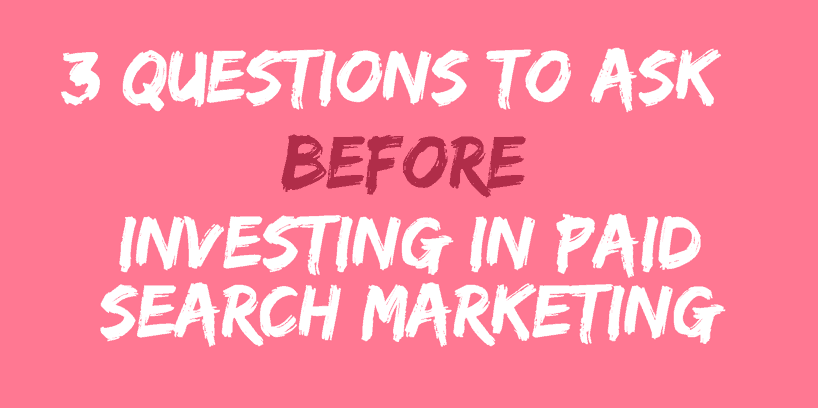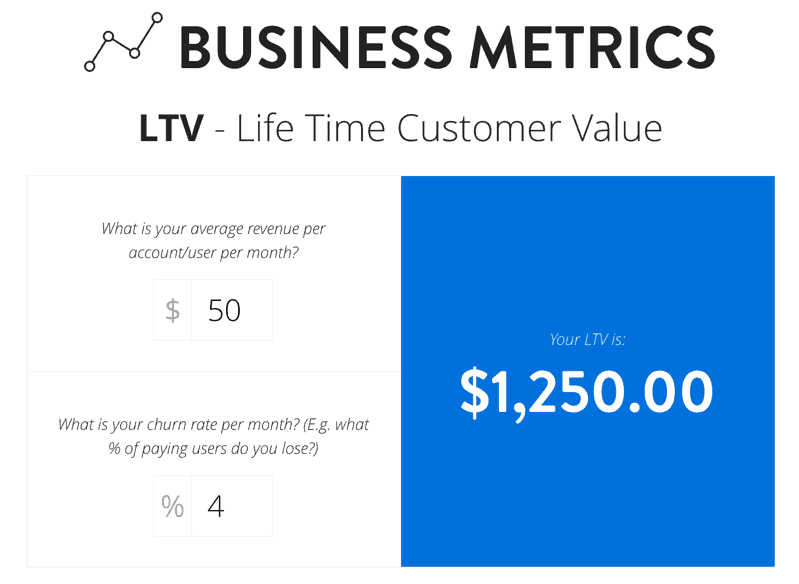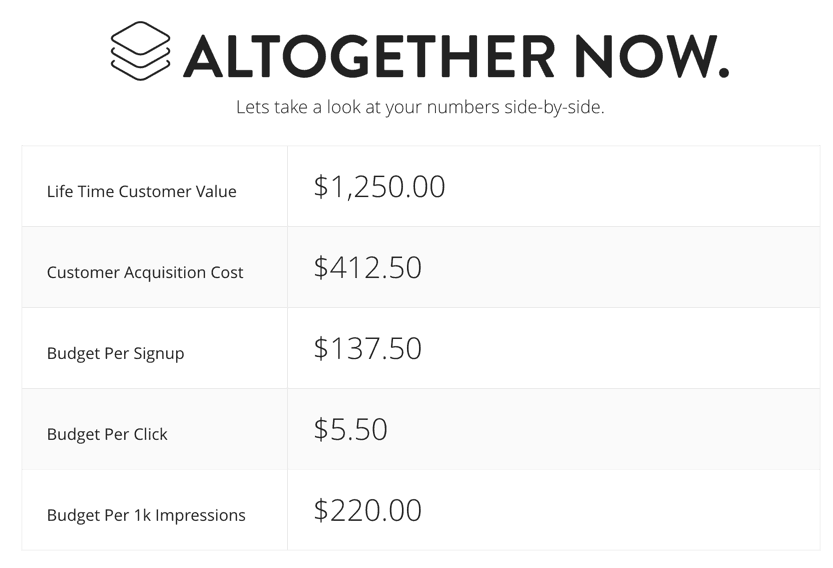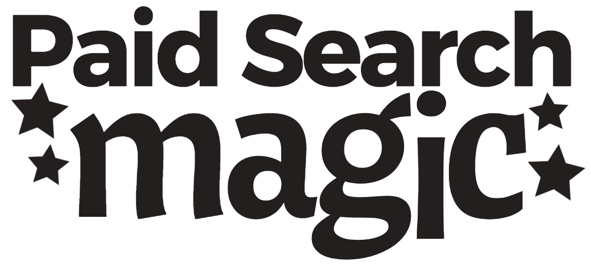
You know paid search marketing can be profitable, but is it right for your business? Here are 3 questions that will help you decide if it’s the right channel for your company.
How will paid traffic help you grow your business (not just your site visits)?
Paid search lets you put your product in front of your ideal market at the exact moment they’re looking for a solution like yours. It’s naturally a great fit for:
- e-commerce – if you can buy it online, you can market it online
- lead generation – collect email addresses from prospects to market to later
Either of these activities can be done to grow your own company or to generate revenue as part of affiliate marketing. They’re the most common, but not the only ways to use PPC in your business. Here are some solid reasons people use PPC even if they’re not driving online sales:
- Validate market demand. Before investing in the development of a new product, you can test the market’s appetite with paid search ads. Far more accurate than surveys, dry and damp testing can show the viability of your idea and even help with positioning and price points (be sure to stay FTC compliant). You can collect emails along the way for a future launch.
- Test messaging and concepts. Trying to decide what to name your product, or which positioning works best? You can create several distinct landing pages with matching ad sets to see which gets the most interest and which drives the most signups. Ad messages that resonate with your audience can be used for messaging on your site and in other marketing materials.
- Offline activity. While booking appointments and scheduling services are becoming increasingly common online activities, there can still be value in promoting an online store front that simply drives calls and foot traffic to your business.

When paid search is the wrong channel
There are also times where it doesn’t make much sense to pay for traffic. If you’re in an early stage of building your business where you are just trying to gain an audience, paid traffic is probably not the best traffic source. A “grow now, monetize later” approach is fine, but since you pay for every visit to your site (or view of your ad, depending on your pricing model), I recommend steering clear of using PPC for traffic just for the sake of traffic.
Think of it like a direct mail campaign. You’d wait to invest in mailing letters until you have something to promote, you wouldn’t spend the money just to tell people “I exist!” Same with PPC. There are plenty of other good channels online to help with content marketing and (free) traffic generation. Save your paid ad dollars for when you have a specific goal your investment can help you achieve.
What is your business reason for paying for site traffic?
What are the steps between someone clicking your ad and you making money?
Of all the missteps people can make with PPC marketing, one of the most common is running ads with no clear path to the action the visitor should take.
It’s easy enough for Coca-Cola to put up a billboard without needing a QR code or tiny URL; the brand is ubiquitous. Everyone knows what they sell, where to buy it, how to consume it, what it costs, and why they might want it.
For most companies doing business online, the path to purchase is not that obvious. Coke has some obvious market advantages with awareness and distribution. Not only are most people less aware of your product than they are of a can of coke, it probably takes a lot more effort for your customer to buy from you than pulling into literally any gas station, grocery store, or most restaurants and ask someone for it.
What are the steps that it takes for someone to go from clicking your ad to your company seeing a return on your investment? It can be as simple as an immediate purchase, or as complicated as an 18 month sales funnel.

Every step of the path to revenue should be optimized
No matter how many or few steps are involved, each step should help your prospect get closer to the end goal. This is just good business sense, but it’s especially important when you start paying for people to take the first step.
Let’s say you’re trying to get people to attend a seminar. If the email reminder doesn’t get sent out, that’s an obvious problem. But if the email is unreadable, or merely states the place and time without reminding someone why they should fight traffic on a Saturday morning to attend, fewer people will show up.
If you paid money to drive the signups, then not having a good autoresponder would mean some of your initial investment was wasted. This is why it’s so important to optimize every step of the path. Your paid search ads can only drive revenue if people aren’t falling out of your funnel on their way there.
Optimizing the path to revenue can be as simple as using a good sales page template, or it can be much, much more complicated. Are your landing pages relevant to the keywords and ads? Are your opt-ins compelling? Is your email sequence strategic? Is your pricing competitive? Is your sales floor good at closing? Does your product meet and exceed expectations?
The better each step in the path is, the more profitable your paid search campaign will be. Driving traffic to your home page and hoping it eventually leads to revenue is not a good plan.
What’s the path between the click and revenue? What’s standing in someone’s way from moving forward?
How will you know if paid search is working for you?
To know if PPC is effective for your company, you need to know your numbers.
How much should you be spending on advertising? The brilliant team at Qwilr put together this paid ad calculator that can help you back into the right targets.

Once you’ve plugged everything in, you’ll have a good idea of how much you can spend on advertising:

If you’re just getting started with advertising, you’ll need to base your values on assumptions.
Are you assuming that the conversion rate for paid will be the same as organic? Are you assuming that the life time value for customers acquired through paid search will be the same as other channels?
The smaller your current customer base, the harder it will be to make accurate predictions of future performance.
Be sure that your projections are based in reality, not in your hope for the future.
For example, entrepreneurs often over-estimate the market’s appetite for their product. They think that everyone who hears about their product will become a buyer, so the amount of traffic they drive to their website is the same amount of sales they’ll get. There’s also a bias for thinking that if people aren’t buying, it’s a problem with the marketing rather than the offer.
No one converts 100% of visits, and if the success of the marketing plan depends on unrealistic numbers, it’s probably best to not allocate budget to paid traffic.
The final part of knowing your numbers is tracking and attribution. AdWords is very accountable, but attribution is always a challenge. Be sure you know what attribution model you’ll use. You don’t want to invest in PPC only to question whether you’d be getting all the traffic from organic anyway.
How will you know if paid search is working for you?
If you’re comfortable with the answers to all three of these questions, paid search marketing might be the right channel to add to your marketing mix.
Still have questions? Schedule a 1-on-1 consulting call to figure out if it’s the right step.
If you feel the same way, join us here. You'll get our latest content and podcast episodes that will teach, inspire, and motivate you to achieve new levels of success with Paid Search. Success! You're in. You'll get our latest stuff soon. Here at Paid Search Magic, we get pretty excited about all things related to getting better RESULTS in Paid Search Marketing.

